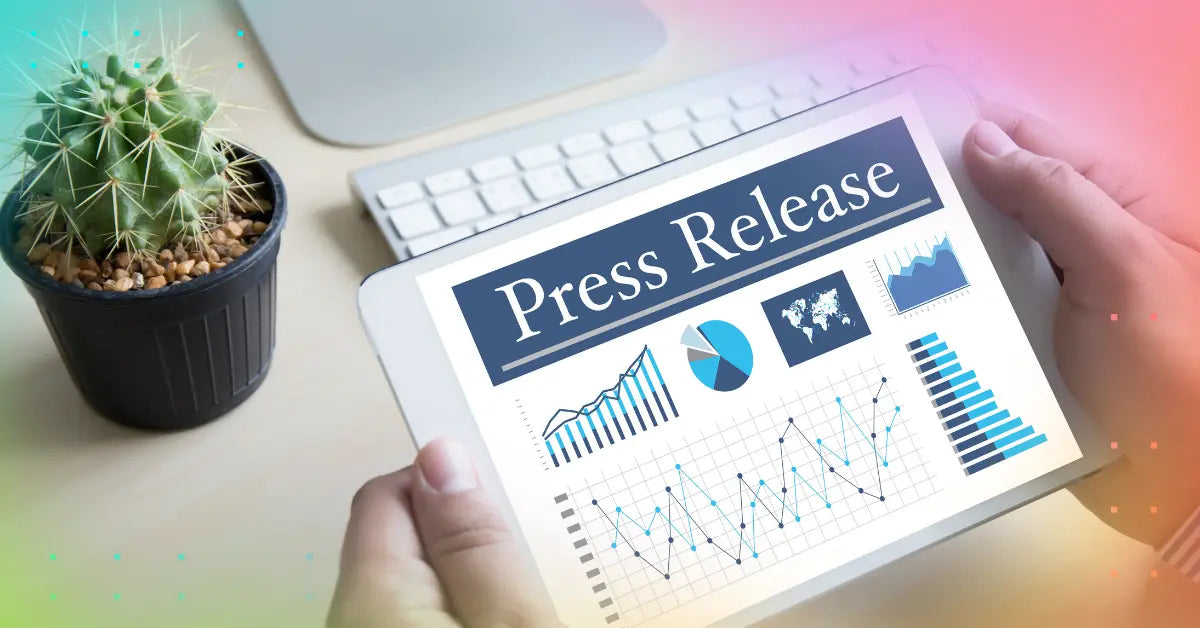The music industry is changing fast. Today, it's not just about how good your music sounds but also how well you understand your audience. This is where music industry analytics come into play. These analytics help artists, record labels, and producers make smart decisions on how to distribute their music for better reach. They also tell what listeners like, where they are from, and how they listen to music. Let's dive deeper into this topic and see why it's so important.
The Power of Data in Music
Long ago, making music was all about talent and maybe a bit of luck. But now, there's something else that's just as important - data. Data helps us see patterns. For example, what kind of music is popular in different parts of the world? Or, what time do people listen to relaxing music? By looking at this information, anyone in the music business can make better choices.
Music analytics can change the way songs reach listeners. With data, musicians and labels can see which songs are popular. They learn about listeners' ages, where they live, and their music tastes. This info helps in making music that people will love.
Data also shows how songs perform online. Are people streaming, downloading, or buying the music? This helps in deciding which songs to promote more. It also influences decisions about music videos or concerts.
One cool thing about data is how it finds trends . It might show that a certain type of music is becoming popular. Musicians can use this insight to try new things in their music. This keeps them ahead in the game.
In short, data in music is like a secret tool. It helps the music industry to grow. It makes sure artists and their music connect well with fans. This makes everyone happy – the artists, the industry, and the listeners.
Why Are Music Analytics Important?
Music analytics are crucial because they offer precise insights into the music market. This technical knowledge helps the industry in several ways. First, analytics help in understanding listener behavior. By analyzing streaming data, we learn what listeners prefer at different times. This information is key for scheduling releases or planning marketing campaigns.
Second, analytics are used to measure the success of songs and albums. Technical tools track streams, downloads, and purchases. They also analyze social media engagement and website traffic. These metrics show how well music is received. This guides artists and labels in making future decisions.
Moreover, analytics help in identifying new markets and opportunities. By examining listener data, the industry can spot trends early. For example, if analytics show an increase in interest in a certain genre, artists and labels can focus more on that genre.
Lastly, analytics improve financial decisions. They help predict which investments will likely pay off. This could be in marketing certain tracks or investing in emerging artists. By relying on data, the industry can reduce financial risks.
In summary, analytics bring a scientific approach to the music business. They make the industry smarter and more efficient. This is why they are not just important, but essential.
Types of Music Analytics
Music analytics can be categorized into several types, each serving a specific purpose and offering unique insights into the market. Understanding and interpreting these analytics requires industry knowledge, as each type sheds light on different aspects of music consumption and listener behavior. Here are the main types:
- Streaming Analytic. This involves analyzing data from streaming platforms like Spotify, Apple Music, and YouTube. It includes metrics such as the number of streams, monthly listeners, playlist additions, and listener demographics. Streaming analytics help artists and record labels understand which songs are popular and who their audience is, enabling them to target their marketing more effectively.
- Social Media Analytics. These analytics track engagement on platforms like Instagram, Twitter, and Facebook. Metrics include followers, likes, comments, and shares. Social media analytics are crucial for measuring an artist's online presence and engagement with fans. They can indicate an artist’s popularity and the effectiveness of promotional campaigns.
- Sales Analytics. This type involves analyzing sales data from digital downloads and physical sales (CDs, vinyl). It helps determine an artist's revenue streams and the overall financial success of their music. Sales analytics provide a direct measure of commercial success and are essential for financial planning and forecasting.
- Radio Airplay Analytics. These analytics measure how often a song is played on the radio, which is still a significant factor in music promotion. Radio airplay analytics can help artists and labels understand their reach in traditional media and identify potential areas for radio promotion.
- Sentiment Analysis. This type uses natural language processing to analyze listener comments and reviews across various platforms, including social media and music streaming services. Sentiment analysis provides insights into how listeners feel about a song or an artist, which can be invaluable for branding and positioning in the market.
Understanding and reading these analytics requires a mix of technical skills and industry knowledge. For example, high streaming numbers might indicate popularity, but they need to be contextualized with other metrics like playlist additions or listener demographics to understand the full picture. Similarly, positive sentiment analysis combined with high social media engagement can signal a strong fan base and potential for viral marketing campaigns.
In summary, music analytics offer a comprehensive view of an artist's performance and market position. By leveraging these analytics, artists and labels can make informed decisions, from marketing strategies to financial investments, ultimately leading to more successful and targeted music promotions.
Tools for Analyzing Music Data
These tools are very important for anyone in the music industry. They offer insights that were hard to get in the past. With these tools, making smart decisions in the music business is easier than ever.
- Spotify for Artists is a must for musicians. It gives detailed info about how songs are doing on Spotify. Artists can see how many people are streaming their music. They also learn about their listeners' ages, genders, and locations. Spotify for Artists helps musicians understand their audience better.
- SoundCharts is like a spy tool for the music industry. It tracks music data across many platforms. This includes radio, social media, and streaming services. It gives a full picture of how a song or artist is performing globally. This helps in making informed decisions about promotions and tours.
- Chartmetric is a powerful analytics tool. It collects data from music charts, playlists, and social media. It helps understand trends and artist performance. This tool is great for spotting opportunities in the market. It also tracks how well promotional efforts are working.
- AMP focuses on predicting music trends. It uses streaming data and social media activity. This tool is great for artists and labels wanting to stay ahead. It shows what's likely to become popular. This helps in planning releases and marketing strategies.
- Musicmetric offers a wide range of data. This includes social media stats, sales figures, and piracy data. It gives a comprehensive view of an artist's online presence. Musicmetric is useful for improving digital marketing. It helps in reaching more fans online.
How to Use Music Analytics for Success
Using analytics in the music industry is a game-changer. It can help you understand your audience, improve your music, and plan better marketing strategies. Here's how you can practically use analytics for success:
1. Identify Your Audience
- Start by examining streaming analytics. Look at who listens to your music. Pay attention to age, location, and even the time they listen.
- Use social media analytics to see which posts get the most engagement. This tells you what your audience enjoys.
2. Track Your Music's Performance
- Keep an eye on streaming numbers. Notice which songs are played the most.
- Check playlist placements. Being added to popular playlists can boost your streams.
- Sales analytics show you how well your music sells. This includes both digital and physical sales.
3. Analyze Engagement
- Use social media analytics to track likes, comments, and shares. High engagement means people like what you do.
- Sentiment analysis helps you understand how people feel about your music. Look for patterns in comments across platforms.
4. Adjust Your Strategy
- If certain types of songs get more streams, consider making more music like that.
- Use audience demographics to target your marketing. For example, if your listeners are mostly from a specific city, plan a concert there.
- If a marketing campaign leads to a spike in engagement or streams, use similar strategies in the future.
5. Implement Feedback
- Pay attention to what your audience says in comments. Use their feedback to improve your music or marketing.
- Watch how changes in your music style or marketing strategies affect your analytics. Learn from what works and what doesn't.
6. Tools to Use
- Spotify for Artists, Apple Music for Artists, and YouTube Analytics are great for tracking streaming and audience demographics.
- Tools like Hootsuite or Buffer can help track social media engagement.
- Google Analytics is useful for website traffic, and Chartmetric provides comprehensive industry analytics.
7. Practical Step
- Weekly Check-ins: Dedicate time each week to review your analytics across platforms. This helps you stay informed about your music's performance and audience changes.
- Experiment: Try different types of content, posting times, and marketing messages. Use analytics to see what works best.
- Engage: Use insights from sentiment analysis and social media engagement to interact with your fans. This builds a loyal community.
- Plan Releases : Look at when your music is most listened to and plan releases around those times. Use demographic data to decide on marketing channels.
- Educate Yourself: The world of analytics is always changing. Keep learning about new tools and methods to analyze your data.
By following these steps and using analytics effectively, you can make informed decisions that lead to success in the music industry. Analytics give you a roadmap; by understanding and acting on this data, you can have a more successful music career.
Music analytics: Challenges and Considerations
Using analytics in the music industry is not always straightforward, especially for beginner artists. It can be challenging and time-consuming. Here’s why:
- Learning Curve. Understanding analytics requires knowledge of specific tools and platforms. For beginners, this can feel like learning a new language. It takes time and effort to understand what the data means and how to use it.
- Time Investment. Analyzing data is time-consuming. Artists often prefer to focus on creating music. Diving deep into analytics can divert attention and energy away from the creative process.
- Complexity of Data. Music analytics involve various metrics and data points. For someone new to the industry, making sense of this data can be overwhelming. It's not always clear which metrics are important and how they relate to each other.
- Strategic Planning. Even with the right data, knowing what to do next is a challenge. It requires strategic thinking and planning. Artists need to translate data insights into actionable steps. This isn't always straightforward and requires industry knowledge.
- Constant Changes. The music industry and listener preferences are always changing. Keeping up with trends and adjusting strategies accordingly is a continuous effort. This dynamic environment adds another layer of complexity to using analytics effectively.
Given these challenges, many artists turn to specialized agencies like Pitch Us. These agencies have the expertise and industry knowledge to navigate the complexities of music analytics. Here’s how they can help:
- Expert Analysis. Agencies have professionals who understand music analytics deeply. They can quickly interpret data and provide valuable insights.
- Time-Saving. By outsourcing analytics to an agency, artists can save time. This allows them to focus on their music while experts handle the data analysis.
- Strategic Planning. Agencies like Pitch Us don't just analyze data; they help plan what to do with it. They can advise on marketing strategies, promotional activities, and more. This strategic guidance is invaluable for artists looking to grow their careers.
- Up-to-date knowledge. These agencies keep up with the latest trends and changes in the music industry. They can adjust strategies quickly, ensuring artists stay relevant.
- Tailored Services. Every artist is unique. Agencies provide personalized services based on an artist's specific goals and needs. This customized approach ensures better results.
For beginner artists, the challenge of navigating music analytics is real. It requires time, effort, and a lot of learning. Specialized agencies offer a solution. They bring expertise, save time, and provide strategic guidance. For artists looking to use analytics effectively, partnering with an agency like Pitch Us can be a smart move.
Music analytics are changing how music is made and sold. They offer a path to success that was not available before. By understanding and using this data, anyone in the music business can make smarter decisions. In the end, it's all about connecting with listeners in the best way possible.
Get in touch with Pitch-Us and boost your music career.





2 comments
Noman Baloch
3. I never knew I could analyze my music taste so deeply until I found https://obscurifymusic.us
Noman Baloch
I never knew I could analyze my music taste so deeply until I found this site.
Leave a comment
This site is protected by hCaptcha and the hCaptcha Privacy Policy and Terms of Service apply.